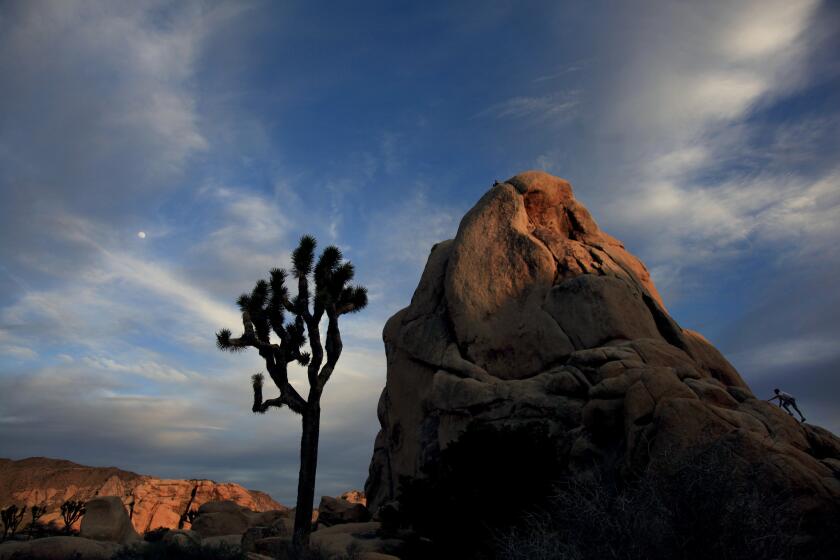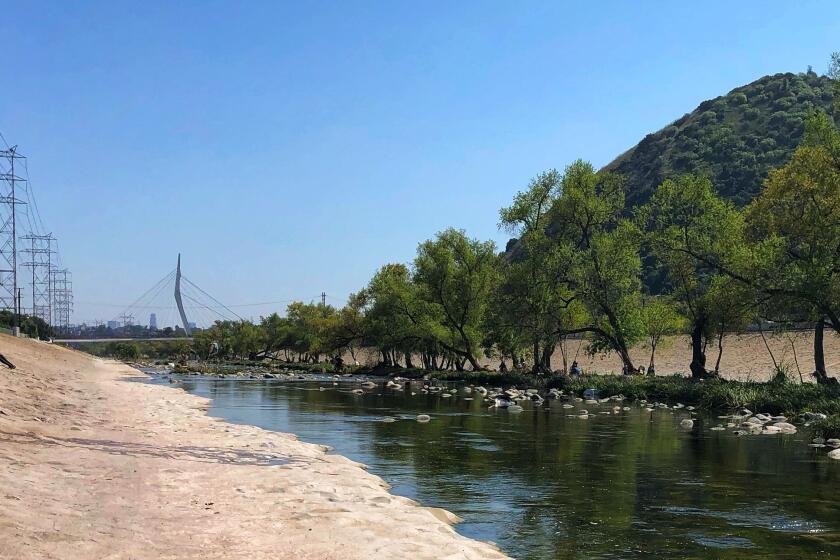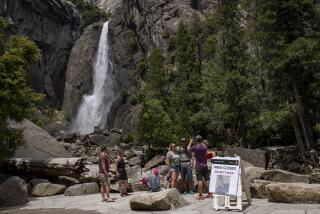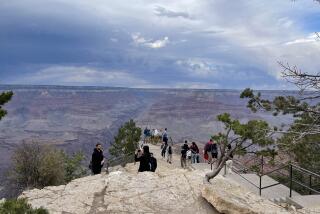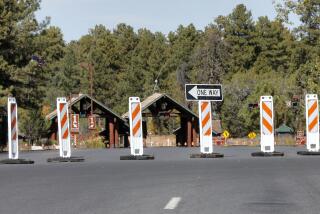Grand Canyon National Park closes on advice of local health officials
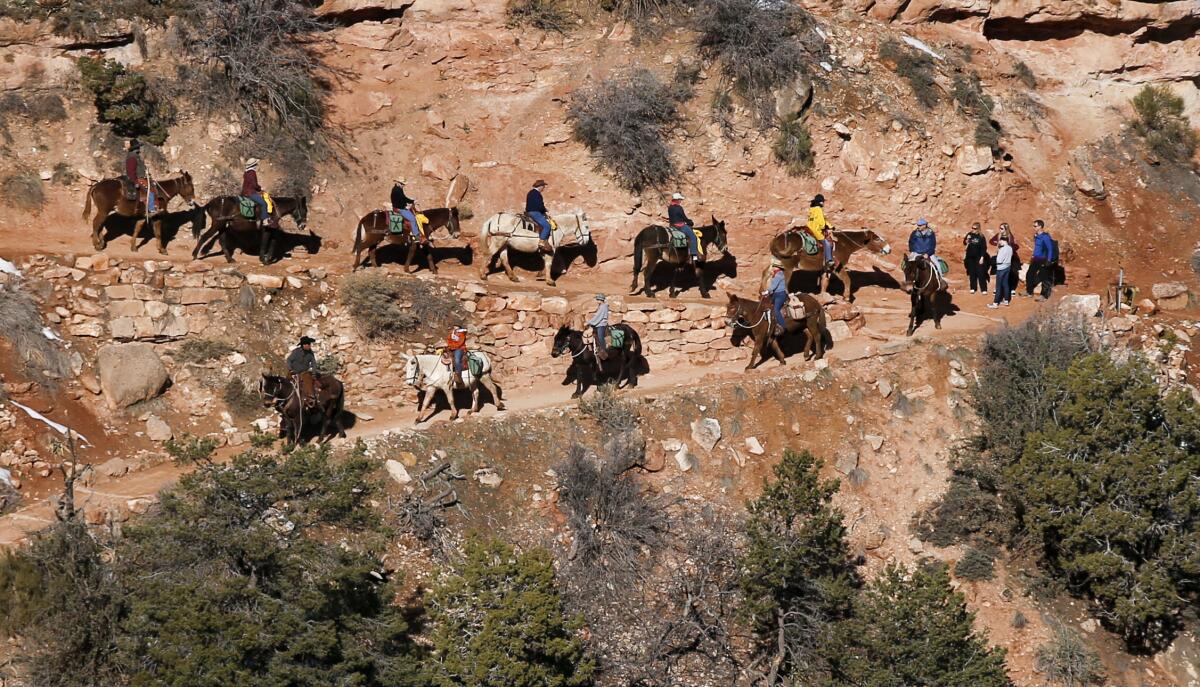
- Share via
Grand Canyon National Park closed to visitors Wednesday, saying in a statement that it was following “the guidance of state and local health officials” who made the recommendation as a measure to stop the spread of the coronavirus. The move came a day after Arizona’s stay-at-home order went into effect.
Also, a Grand Canyon Village resident on the South Rim of the canyon tested positive for COVID-19. The National Park Service earlier confirmed that at least seven employees (none at the Grand Canyon) had contracted the coronavirus.
The park closed indefinitely to all visitors Wednesday amid the coronavirus pandemic. It earlier had closed campgrounds and access roads into the park but allowed walkers and cyclists to enter.
The nation’s second most popular park drew criticism over the last few weeks for leaving various roads and popular South Rim view points open to visitors. This allowed people to enter and gather in large numbers, which runs counter to public health rules.
The Washington Post reported in a March 26 story: “After thousands poured into Grand Canyon National Park last weekend, the park’s supervisor submitted a request to close it, according to a staffer at the park who spoke on the condition of anonymity for fear of being fired. One park ranger had 600 ‘close contacts’ with visitors in a single day at Bright Angel Trail, the staffer said.”
Last week, in an effort to discourage visitors, the park canceled back-country camping and closed access to the popular Bright Angel, South Kaibab and North Kaibab trails that lead down into the canyon.
Joshua Tree National Park also closed indefinitely Wednesday over coronavirus concerns, the park’s website says. The 800,000-acre desert park east of Los Angeles earlier had closed campgrounds and access roads into the park but allowed walkers and cyclists to enter. Again, crowds of hikers, bicyclists and climbers flooded the park despite the partial closures.
As coronavirus restrictions tighten, tips for walkers, hikers, cyclists and runners
Grand Canyon, which receives more than 6 million visitors a year, and Joshua Tree join a growing list of parks in the West that have shut to visitors. Yosemite, Yellowstone, Canyonlands and Arches in Utah, Crater Lake in Oregon, and Golden Gate National Recreation Area in the San Francisco Bay Area are closed indefinitely.
Other national parks, such as Zion National Park in Utah, as well as Redwood National and State Parks in Northern California, have shut services, campgrounds and some roads but kept natural areas open to hikers.
More to Read
Sign up for The Wild
We’ll help you find the best places to hike, bike and run, as well as the perfect silent spots for meditation and yoga.
You may occasionally receive promotional content from the Los Angeles Times.
